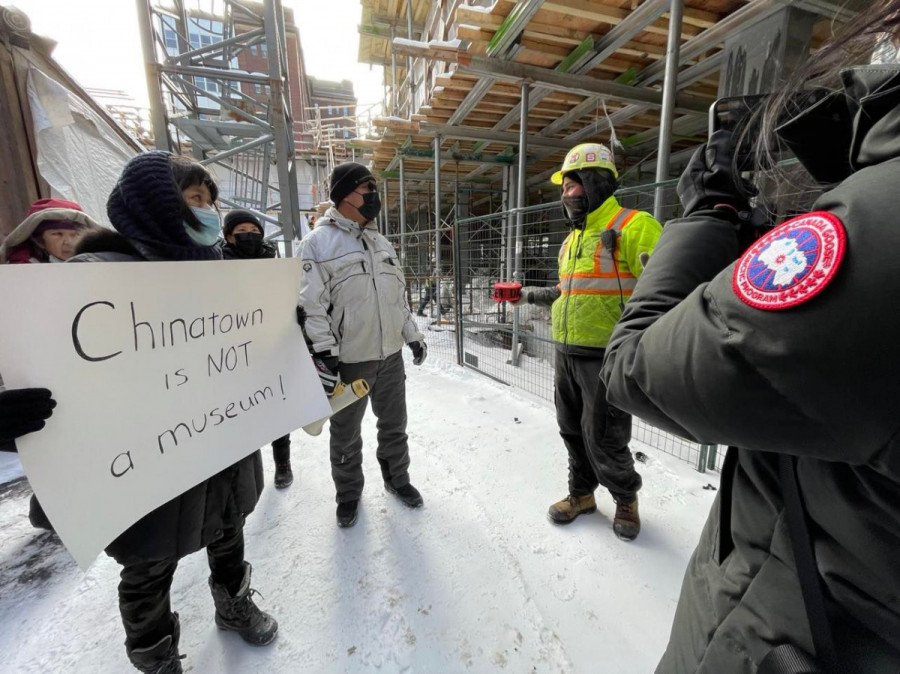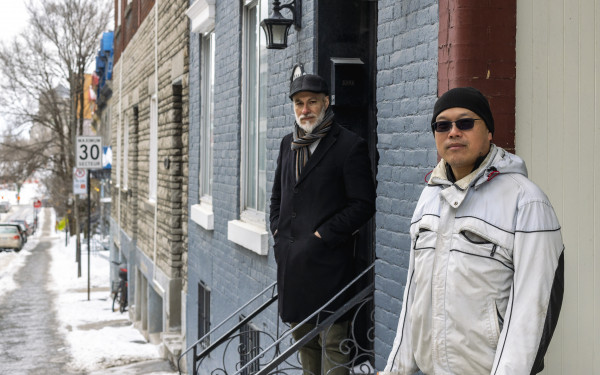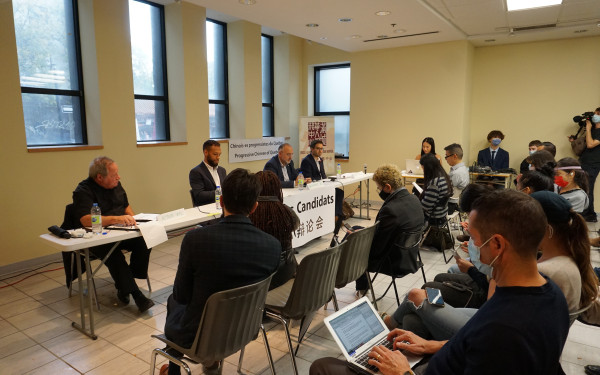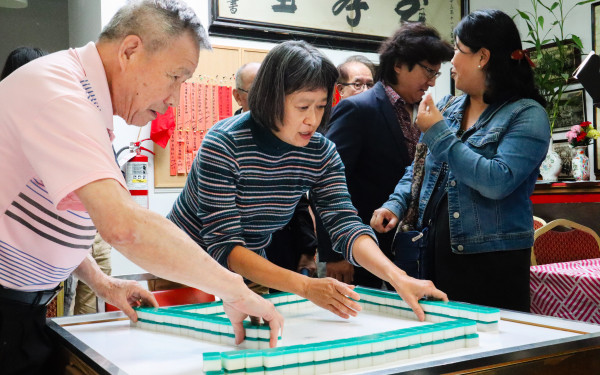Montreal’s Chinatown hosts press conference to address ongoing issues
Despite Chinatown receiving heritage protection, community members continue to express concerns over living conditions
On Jan. 24, the Progressive Chinese of Quebec, Comité logement de Ville-Marie, and other Chinatown community organizations hosted an outdoor press conference to highlight the intrusion of private real estate developments in the neighbourhood.
The Quebec government announced at Monday morning’s virtual press conference its decision to classify Chinatown as a heritage site. The announcement also prompted Montreal to update its urban development plan by setting up parameters to limit construction in historical areas of the neighbourhood.
Despite the wave of good news, PCQ member May Chiu said much more needs to be done beyond protecting buildings. “The heritage designation which is part of the Chinatown Action Plan must be given life by providing for all the needs of the community, such as social housing, support for heritage businesses, health-related services, and green spaces,” she said.
“Chinatown is the nesting place of living heritage such as our seniors, who hold our memories of struggles and survival here.” — May Chiu
Heritage protection was placed on two historic buildings in the neighbourhood, the S. Davis and Sons Factory and Wing’s Noodles Factory (formally known as the British and Canadian School). In a virtual conference Monday morning, Mayor Valérie Plante said the city will extend the territorial claim of Chinatown’s historical sites to ensure all of the neighbourhood is safe from upcoming developments in the area.
The press conference was held later in the afternoon, where journalists huddled around the front porch of Chinatown resident Kent Chong’s home on Hôtel-de-Ville Ave. Residents and community members carried signs stating, “Chinatown is not a museum.”
“We live here! We demand a quality of life,” Chiu added.
Chiu escorted media personnel through an alleyway leading into Chong’s backyard, revealing the 20-storey construction project behind his home. Chong’s residence hosts three generations of his family: his grandparents, his wife, and two children.
With only four storeys erected, Chong said living next to a construction site is a nightmare, on account of the debris caused by construction. “I can’t even use my own yard, storage, or balcony because of the mess that was made,” he said.
A megaphone was passed around for community members to express their concerns and share their experiences dealing with impending construction. Concerns over heritage protection emerged last year after real estate firms, Shiller Lavy and Kornbluth Hill Capital, bought out the Wing’s Noodles Factory block.
As Chong began to speak, construction workers interrupted and advised community members, along with media personnel, to wrap up the press conference as quickly as possible due to safety concerns.
Chinatown residents Jean-Phillippe Riopel and Daniel Pourreaux both shared their stories of neglect and pleas for adequate heritage protection with the crowd. The conference finished with a speech by Chiu herself.
“Chinatown is the nesting place of living heritage such as our seniors, who hold our memories of struggles and survival here,” she said.
Since the neighbourhood hosted its first municipal debate in November, Plante’s Projet Montreal promised to grant Chinatown heritage protection if she were re-elected mayor, one of the demands in the Chinatown Action Plan.
Read more: First municipal debate of its kind held in Chinatown
The action plan hopes to improve the living conditions for residents by granting heritage protection and implementing strong zoning by-laws to prevent the construction of highrise buildings, as well as provide funding for Black, Indigenous and People of Color-owned art studios and cultural workers, support legacy businesses, and affordable social housing.
The municipal and provincial governments will provide heritage protection within historical boundaries of the neighbourhood, such as Sainte-Dominique St., Viger Ave., Jeanne-Mance St., and René-Levesque Blvd.
The boundaries of the updated urban development plan were made by a tripartite committee composed of Chinatown Working Group members, Heritage Montreal, and city council members, to prevent real estate developers from breaching historical and residential areas for upcoming projects.
“It will be a way to keep the soul of Chinatown, making sure in terms of architecture and keeping it at a human scale,” Plante said.




3_600_375_90_s_c1.jpg)


